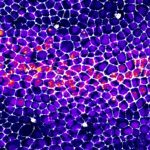Link to Pubmed [PMID] – 35883457
Link to HAL – hal-03711798
Link to DOI – 10.3390/biom12070901
Biomolecules 2022 Jun; 12(7):
Since the Nobel Prize award more than twenty years ago for discovering the core apoptotic pathway in C. elegans, apoptosis and various other forms of regulated cell death have been thoroughly characterized by researchers around the world. Although many aspects of regulated cell death still remain to be elucidated in specific cell subtypes and disease conditions, many predicted that research into cell death was inexorably reaching a plateau. However, this was not the case since the last decade saw a multitude of cell death modalities being described, while harnessing their therapeutic potential reached clinical use in certain cases. In line with keeping research into cell death alive, francophone researchers from several institutions in France and Belgium established the French Cell Death Research Network (FCDRN). The research conducted by FCDRN is at the leading edge of emerging topics such as non-apoptotic functions of apoptotic effectors, paracrine effects of cell death, novel canonical and non-canonical mechanisms to induce apoptosis in cell death-resistant cancer cells or regulated forms of necrosis and the associated immunogenic response. Collectively, these various lines of research all emerged from the study of apoptosis and in the next few years will increase the mechanistic knowledge into regulated cell death and how to harness it for therapy.


